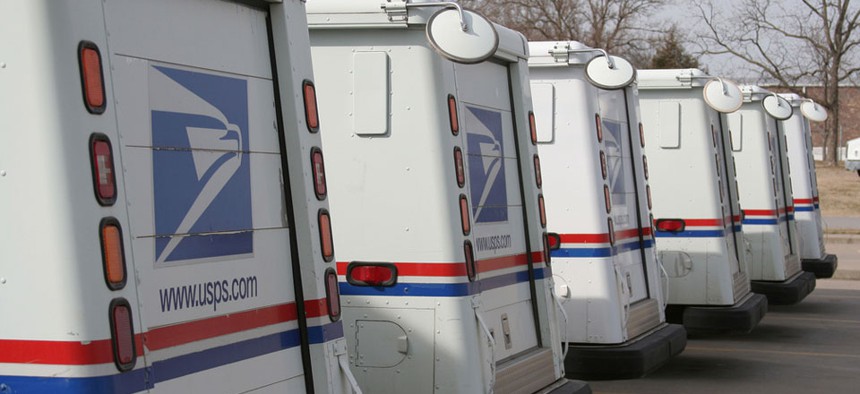
Flickr user cobalt220
Lawmakers Closing Gap for Bipartisan Postal Overhaul
Rep. Issa appeases critics with changes to his bill.
Lawmakers on the House oversight committee continued to find common ground toward a bipartisan bill to overhaul the U.S. Postal Service, with a key Republican conceding several major Democratic sticking points at a hearing Wednesday.
Rep. Darrell Issa, R-Calif., chairman of the House Oversight and Government Reform Committee, announced several changes to his draft legislation in an effort to appease his critics.
“We want to get as close to 100 percent before it comes to the committee,” Issa said after Rep. Elijah Cummings, D-Md., the committee’s ranking member, voiced numerous concerns in response to Issa’s bill.
Issa -- who released his draft legislation in June -- said he would relent to pressure to eliminate the bill’s proposal to require the renegotiations of collective bargaining agreements. He added, however, the next round of negotiations between USPS and its employee unions would have to fall in line with the rest of the federal workforce -- including the availability of layoffs. Overall, Issa agreed to include several provisions from Cummings’ own bill, which the ranking member released last week.
The committee chairman also agreed to include assumptions specific to the Postal Service’s workforce in making pension surplus calculations, rather than using the same formula as the rest of the federal workforce. Democratic lawmakers and postal stakeholders have long called for the USPS-specific assumptions.
The Republican proposal will create a chief innovation officer, a key provision in Cummings’ bill.
Prior to Issa’s concessions, Cummings expressed discontent with his Republican colleague’s plan. “I am disappointed in the draft language put forward by the chairman,” Cummings had said. “If we reject extreme measures…I believe we can identify common sense provisions that provide for common good.”
With many concerns raised in prepared testimony from several Democratic lawmakers mollified by Issa’s announcement, however, the committee moved much closer to striking a bipartisan deal.
“Our bills are not yet identical,” Issa said, but added the collaboration between to the two sides has been strong.
Later in the hearing, Cummings echoed the chairman’s confidence that a deal could be reached.
“We can resolve this,” Cummings said. “If we can send somebody to the moon, we can solve this.”
Postmaster General Patrick Donahoe once again emphasized the need for such a deal in order to sustain his agency. He repeated calls for USPS to move to a five-day delivery schedule. He also called for a break with the Federal Employees Health Benefits Plan and a move to a USPS-specific health care program.
“We need to build a bridge that gets us all the way to the other side,” Donahoe said. “Half measures are about as useful as a half bridge.”
Cliff Guffey, president of the American Postal Workers Union, asked the committee to provide the postmaster general with flexibility, but not to require him to adapt any specific provision.
“Unions and the Postal Service can work together to create a better postal service,” Guffey said.
The panel also heard testimony from Rep. Adrian Smith, R-Neb., who spoke about his bill to preserve rural post offices. Issa said he “fully concurred” with the need to include the proposal in the final bill.
NEXT STORY: The Cheney Dynasty Rises







